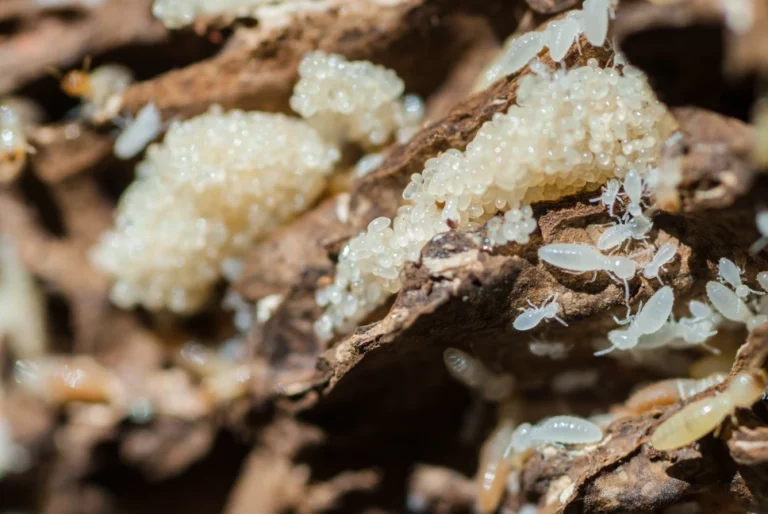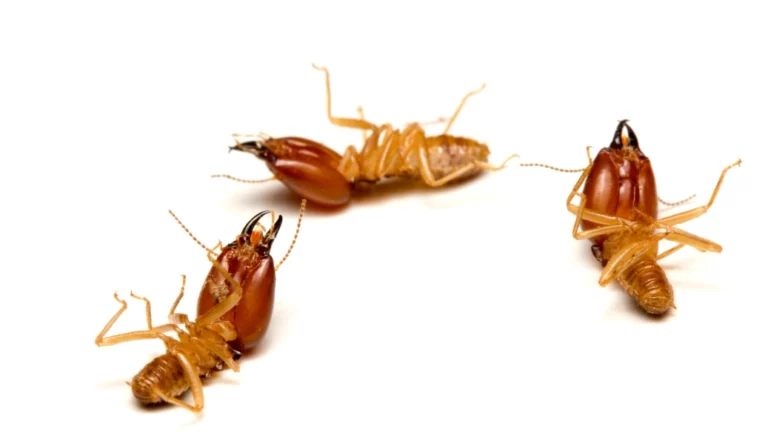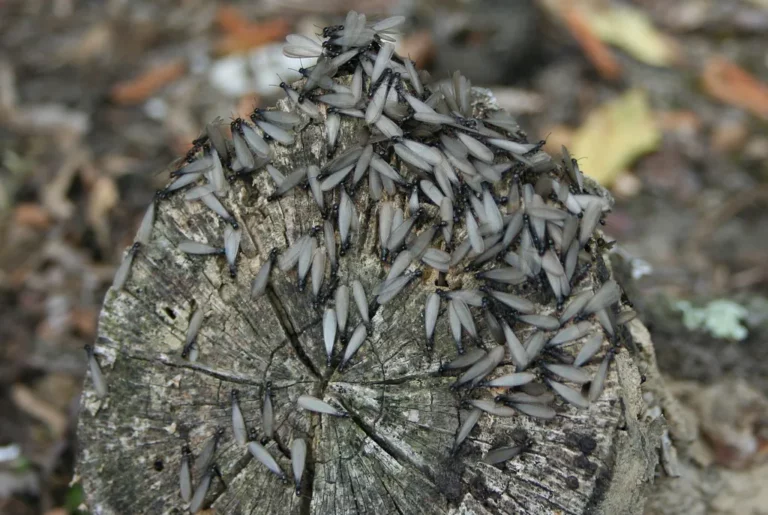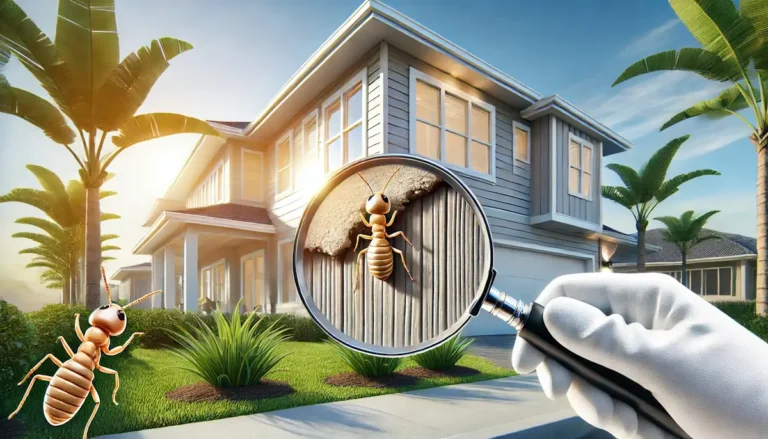Table of Contents
ToggleWhy Termite Inspections are Essential
Tiny but powerful, termites can cause significant damage to your home if not dealt with promptly. Their ability to silently consume wooden structures often makes them a source of concern for homeowners.
Regular termite inspections are important for identifying infestations and preventing extensive damage. This article helps you prepare your home for a termite inspection.
You may be wondering if a termite inspection is required when buying a home. Check out our blog “Is a Termite Inspection Required When Buying a Home?” to learn all about this!
Understanding the Termite Inspection Process
A qualified pest control specialist will come to your property and conduct a comprehensive inspection to detect evidence of termite infestation. All parts of your home will be examined, including the interior and exterior walls, crawl spaces, basements, attics, any wooden structures. Additionally, the inspector will assess nearby spaces like gardens and trees, since termites can begin from outdoors and migrate into houses.
Preparation Steps for a Termite Inspection
If you want to make sure that your termite inspection goes smoothly, there are some key preparation steps you should follow.
Clear Clutter and Provide Access
To help the inspector check for termites, make sure to clear any objects blocking the way to attics, basements, and crawl spaces. This helps the inspector do their job more easily.
Trim Overgrown Vegetation
Trim any bushes, trees, or shrubs that are overgrown and too close to your home. Eliminating direct contact points between the vegetation and your house reduces the risk of termites finding their way inside your house.
Repair Leaks and Moisture Issues
To prevent termite infestations and ensure proper termite control, it is important to address all leaks and moisture issues. Termites are attracted to moisture, as it is necessary for their survival. Fix any leaky roofs, faucets, or pipes to eliminate any potential water sources. Proper ventilation is crucial in areas like basements and attics to minimize humidity levels.
Remove Wood Piles and Debris
Termites are attracted towards wood piles, stacked lumber, and debris near your home. These areas become the ideal nesting sites for termites.
To prevent termites from settling around your property, it is important to eliminate such potential sites. Firewood should be stored away from your home, elevated from the ground, and at a safe distance. This helps to minimize the risk of termites using it as a pathway into your home.
Seal Entry Points
To keep termites out of your home, look for cracks, holes, or gaps. These can be entry points for termites. Check door frames especially. Use caulk or appropriate sealants to close these openings and deny termites access to your home.
Be especially careful around utility lines, pipes, and cables that enter the building as they are common entry points for pests.
Secure Important Documents and Valuables
To make sure that the termite inspection goes smoothly, the inspector may need to enter different parts of your house. Make sure to keep important papers, breakable things, and valuable items in a safe spot. This helps stop them from getting lost or damaged. Here are a few tips to help keep them safe:
- Make sure to keep important papers safe. Secure documents like passports, birth certificates, and property deeds. Doing so will shield them from termites and other potential hazards during inspections.
- To avoid accidents, move delicate things like antiques and vases. Keep them away from areas where the inspection will happen. Temporarily relocating them to a safer spot is the best way to keep them protected.
- To make things safer, think about putting important items like jewelry and electronics in a locked cabinet or drawer during the inspection. This helps keep your valuable things safe.
Make sure to keep your important things and papers safe during the termite inspection. This will help you feel at ease. Taking careful steps can help you do this.
Frequently Asked Questions (FAQs)
It’s important to book a termite inspection on a regular basis to keep your property termite-free. How often you schedule an inspection depends on where you live and the type of construction of your property. However, it’s generally recommended to have an inspection conducted at least once a year. Check out our blog “How Often Do You Need a Termite Treatment” to get a better idea.
To detect any possible termite infestations at an early stage, it is advised to have a termite inspection completed once annually.
It’s a good idea to check for termites by yourself. But, it’s better to ask an expert. They can find small signs of termites more easily.
Check out our blog “How To Do a Termite Inspection” to learn how you can perform one yourself.
If you think you have termites, check for these clues. Tap on wood, and if it sounds empty, that’s a sign. Look for thrown away wings, mud tubes, and termite waste that looks like sawdust.
A termite inspection often lasts about 30 minutes to an hour. The time it takes depends on the property size and how complex it is.
We have an article “How Long Does a Termite Inspection Take?” that goes into detail on this!
To prevent termite issues, do these things.
- Keep the air flowing well.
- Fix any leaks fast.
- Make sure your property is dry and has no exposed wood.
If you notice any signs of termites, such as mud tubes or frass, don’t wait – contact a pest control professional immediately. Early detection and treatment can save you time, money, and stress down the line.
Check out our blog about the Early Signs of a Termite Infestation to learn more.
Conclusion
To protect your home from termite infestations, it’s important to be proactive by scheduling termite inspections. With these tips, your home inspection will be thorough. It will also prevent termite damage better.
Don’t forget that catching termites early on is crucial, as it can save you money on repairs down the line. So, take the necessary preventative measures, hire a qualified inspector, and enjoy living in a space that’s free from termite troubles.




